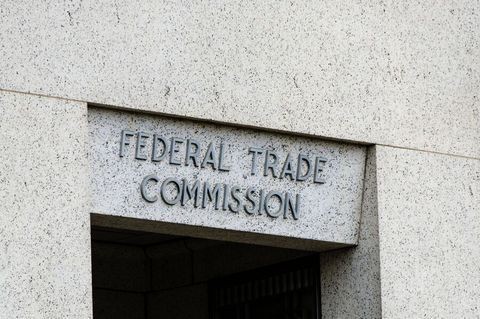Follow Up: White House Issues Order under Defense Production Act as Part of COVID Response
Client Alert | 2 min read | 03.27.20
On March 23, 2020, the President signed an “Executive Order on Preventing Hoarding of Health and Medical Resources to Respond to the Spread of COVID-19” delegating additional authorities under the Defense Production Act of 1950 (“DPA”), which builds on Executive Order (EO) No. 13909, issued March 18, 2020, which we discussed here. The new EO delegated to the Secretary of Health and Human Services (“HHS”) the authority to prevent hoarding of health and medical resources necessary to respond to the spread of COVID-19 by: (1) prescribing conditions for accumulation of such resources; and (2) designating any material as scarce or threatened by excessive accumulation as to reasonable business, personal, or home consumption, or for purpose of resale at excessive prices (i.e., price gouging). These designations, in turn, trigger the prohibitions against hoarding. The EO also delegated the authority to gather information, such as information about how supplies of such resources are distributed throughout the nation, through use of investigations, records, reports, and subpoenas. The DPA and its implementing regulations and orders carry criminal penalties for noncompliance, as well as the possibility of injunctive relief in certain circumstances.
Subsequently, HHS issued a notice, effective March 25, designating fifteen materials as “scarce materials or threatened materials,” including items such as N-95 and other filtering facepiece respirators, ventilators, disinfecting devices, and a variety of health-related personal protective equipment (“PPE”). Under the notice, the term “materials” includes raw materials (including critical components), products, and items of supply; and any technical information or services ancillary to the use of any such materials, commodities, articles, components, products, or items. The term “scarce materials or threatened materials” means health or medical resources, or any of their essential components, determined by the Secretary to be needed to respond to the spread of COVID-19 and which are, or are likely to be, in short supply or the supply of which would be threatened by hoarding. Designated scarce materials or threatened materials are subject to periodic review by the Secretary. The designation self-terminates in 120 days unless superseded by a subsequent notice.
Insights
Client Alert | 3 min read | 05.06.24
FTC Imposes $3.17 Million Civil Penalty for Violation of Prior Made in USA Order
Last week, based on a referral from the Federal Trade Commission (“FTC”), the Department of Justice (“DOJ”) filed a complaint against Williams-Sonoma alleging that the company violated a previous Federal Trade Commission decision and order dated July 13, 2020 (the “2020 Order”) pursuant to which Williams-Sonoma was prohibited from making unsubstantiated U.S. origin claims. The complaint alleged that, following entry of the 2020 Order, Williams-Sonoma made “numerous false and unsubstantiated representations that their home goods or other products are ‘Made in USA’ or otherwise of U.S. origin, when, in fact, they are wholly imported or contain significant imported components.”
Client Alert | 14 min read | 05.03.24
Client Alert | 3 min read | 05.03.24
EEOC’s New “Enforcement Guidance on Harassment in the Workplace” Hits Hot-Button Issues
Client Alert | 11 min read | 05.03.24
FDA Moves Forward on Laboratory Developed Tests while Stakeholders and Congress Weigh Next Steps









